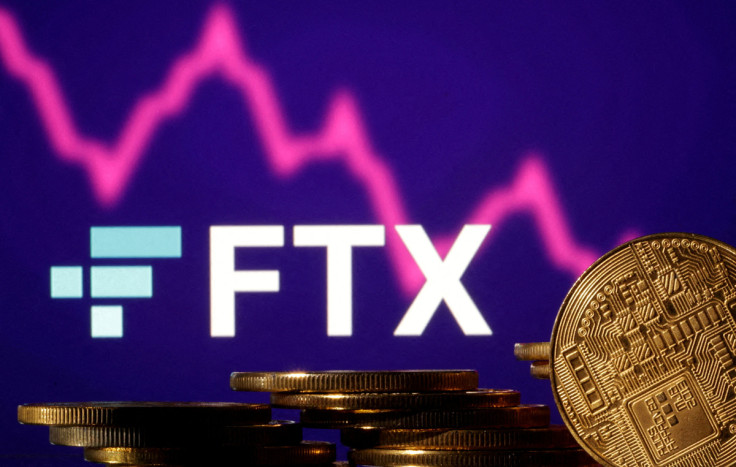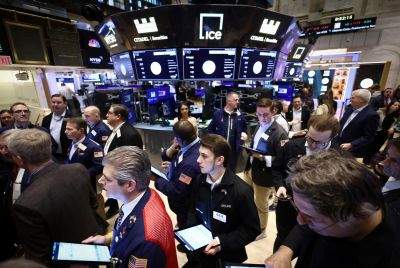Investors Wary After FTX Debacle as People Lose Trust in Companies Managing Their Money
To prevent financial scandals and bolster investor confidence, regulators must continuously update and refine regulations to match evolving financial markets.

The collapse of the FTX cryptocurrency exchange has caused massive waves of consternation throughout the investment world as people feel they can no longer trust the companies managing their money.
There are numerous risks inherent in investing, emphasising the need for due diligence, regulatory oversight and transparency in financial markets.
Throughout history, investors have of course faced numerous risks, including those associated with corruption and theft.
One of the most famous stories took place in the 1920s when Charles Ponzi promised investors a 50 per cent return on their investment within 45 days (or 100% return in 90 days) based on the arbitrage of international reply coupons. The returns were paid using the capital of newer investors, not real profit. Eventually, the scheme collapsed, and Ponzi was arrested.
The infamous Ponzi scheme is named after him.
In 2001, the Enron Corporation was found to have used accounting loopholes and special purpose entities to hide debt and inflate profits. When the truth was uncovered, its stock price collapsed, and many investors lost their life savings.
Bernie Madoff, a former chairman of NASDAQ, ran the largest-ever private Ponzi scheme in 2008. He claimed to offer consistently high returns to his clients, but in reality, he was using new investments to pay returns to earlier investors. The scheme collapsed when he couldn't meet the withdrawal requests, leading to $65 billion in investor losses.
In 2003, Parmalat, an Italian dairy and food corporation, declared bankruptcy after it was revealed that its accounts were manipulated with a €14 billion hole. Investors were left in the lurch when the scale of the financial fraud, one of Europe's largest, was uncovered.
The Stanford Financial Group (2009) saw Allen Stanford accused and later convicted of running a Ponzi scheme through his company. He was charged with fraudulently selling $7 billion in certificates of deposit with improbably high-interest rates.
1Malaysia Development Berhad (1MDB) was a Malaysian state investment fund that was found to have misled investors from 2015 onwards. Billions of dollars were allegedly embezzled from the fund, leading to an international investigation across ten countries.
It is for these very reasons that regulators play an essential role in upholding the integrity of financial markets. To prevent financial scandals and bolster investor confidence, they must continuously update and refine regulations to match evolving financial markets.
Transparency is vital, so companies should be compelled to provide clear and timely information about their financial status.
Protection for whistleblowers who report financial misconduct can help uncover issues early on. Regular, thorough audits by independent entities are crucial to detecting financial irregularities and a strong, independent internal audit function within companies can provide an added layer of scrutiny.
Penalties for financial crimes should be harsh to act as deterrents, including fines, bans and potential jail time. With the global nature of financial markets, collaboration between international regulatory bodies is more crucial than ever.
On the technological front, leveraging modern tools can assist in detecting suspicious activities. Improved governance standards can usher in better oversight and accountability in corporate operations, and strict oversight of financial professionals ensures they meet high standards. Educating consumers about investment risks and recognising warning signs can also prevent potential fraud.
With this in mind, complex financial instruments, like derivatives, must be more transparent to mitigate associated risks. Known for their complexity, enhancing their transparency requires multiple approaches. Centralised clearing of derivatives through clearing houses could reduce counterparty risks and offer a more structured way of handling these instruments.
Proper education and training about derivatives for both market participants and regulators aids in risk management. Platforms providing real-time pricing data on popular derivatives can ensure accurate valuation.
To further deter criminals from committing financial crimes, imposing regulations to curb speculative trading in derivatives can mitigate the risk of market manipulation.
Investors need to conduct due diligence before entrusting their funds to businesses or financial managers. A comprehensive background check is essential, which may involve examining the firm's historical performance, its reputation in the industry and any potential red flags or past regulatory issues.
Looking into the qualifications and track record of the individual fund managers or advisors is equally crucial. Investors can also check for any certifications that the firm might have from reputable financial institutions or industry bodies.
Feedback from other clients, whether through testimonials or direct interactions, can provide insights into the firm's client relations and reliability. It's also beneficial for investors to understand the firm's investment strategy and risk management practices.
Regularly reviewing account statements and cross-checking with independent sources can help keep the firm accountable. Additionally, investors might want to consider how transparent a firm is in terms of its fee structure, ensuring there are no hidden charges or conflicts of interest.
Investors must not become complacent or too trusting. Remaining engaged, asking questions and seeking clarifications wherever needed are all proactive steps investors can take to ensure their money is in safe hands.
Hopefully, the FTX debacle is never repeated.

Daniel is a business consultant and analyst, with experience working for government organisations in the UK and US. On his free time, he regularly contributes to International Business Times UK.
© Copyright IBTimes 2025. All rights reserved.





















